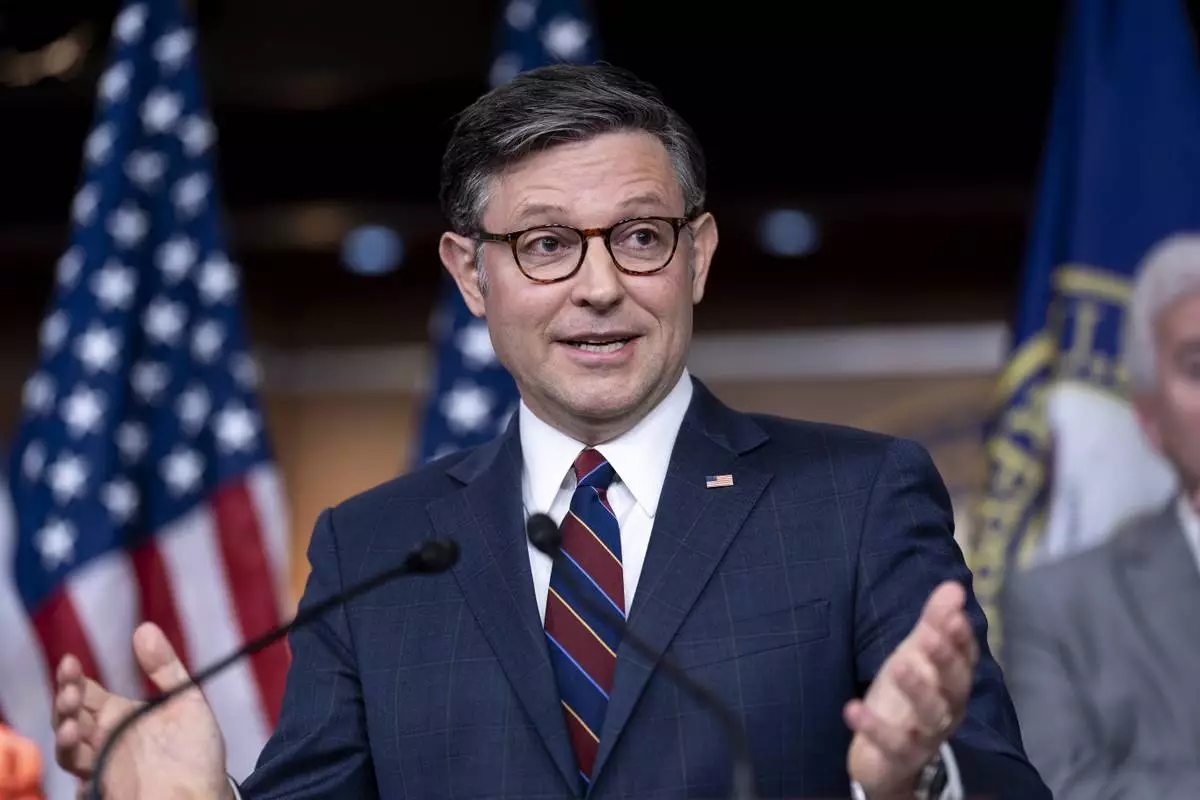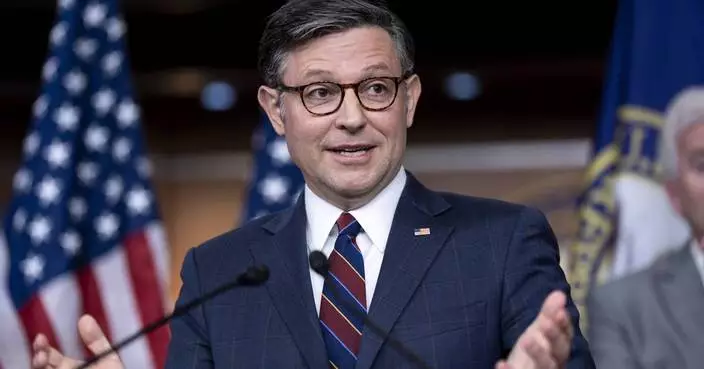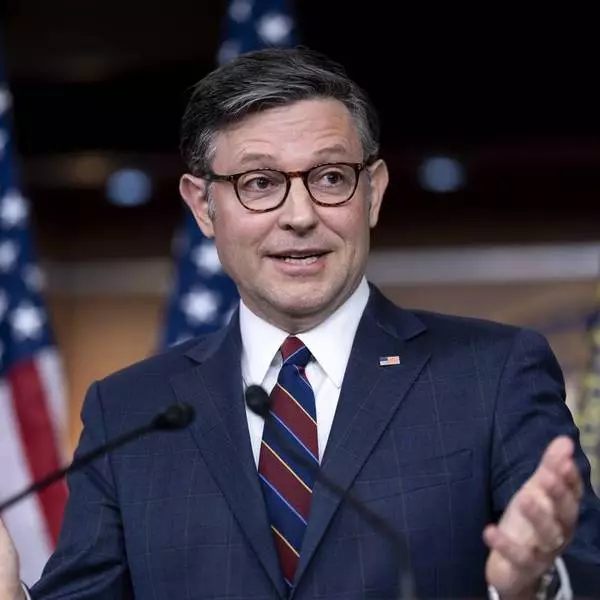WASHINGTON (AP) — House Speaker Mike Johnson will move ahead with a temporary spending bill that would prevent a partial government shutdown when the new budget year begins on Oct. 1, despite the headwinds that prompted him to pull the bill from consideration last week.
The bill includes a requirement that people registering to vote must provide proof of citizenship, which has become a leading election-year priority for Republicans raising the specter of noncitizens voting in the U.S., even though it's already illegal to do so and research has shown that such voting is rare.
“I urge all of my colleagues to do what the overwhelming majority of the people of this country rightfully demand and deserve — prevent non-American citizens from voting in American elections,” Johnson said Tuesday.
Johnson told reporters he was not ready to discuss an alternative plan to keep the government funded other than what will come before the House on Wednesday.
“I’m not having any alternative conversations. That’s the play. It’s an important one. And I’m going to work around the clock to try and get it done,” Johnson said.
The legislation faces an uphill climb in the House and has no chance in the Senate. The vast majority of Democrats oppose it, and some Republicans do, too, but for different reasons.
Senate Majority Leader Chuck Schumer, D-N.Y., said the only way to prevent a government shutdown was for both sides to work together on an agreement. He said the House vote announced by Johnson was doomed to fail.
“The only thing that will accomplish is make clear that he's running into a dead end,” Schumer said. “We must have a bipartisan plan instead.”
The legislation would fund agencies at current levels while lawmakers work out their differences on a full-year spending agreement.
Democrats, and some Republicans, are pushing for a short extension. A temporary fix would allow the current Congress to hammer out a final bill after the election and get it to President Joe Biden's desk for his signature.
But Johnson and some of the more conservative members of his conference are pushing for a six-month extension in the hopes that Republican nominee Donald Trump will win the election and give them more leverage when crafting the full-year bill.
Schumer said a six-month measure would shortchange the Pentagon and other government agencies that need more certainty about funding levels.
“You simply cannot run the military with six-month stopgaps,” Schumer said.
Senate Republican leader Mitch McConnell declined to weigh in on how long to extend funding. He said Schumer and Johnson, ultimately, will have to work out a final agreement that can pass both chambers.
“The one thing you cannot have is a government shutdown. It would be politically beyond stupid for us to do that right before the election because certainly we would get the blame,” McConnell said.
Johnson said last week that he was not giving up on his proposal just yet and would be working through the weekend to build support. He said ensuring that only U.S. citizens vote in federal elections is “the most pressing issue right now and we’re going to get this job done.”
On Sunday, he traveled to Florida to meet with Trump, who had earlier seemingly encouraged a government shutdown if Republicans “don’t get assurances on Election Security.” Trump said on the social media platform Truth Social that they should not go forward with a stopgap bill without such assurances.
The House approved a bill with the proof of citizenship mandate back in July. Some Republicans who view the issue as popular with their constituents have been pushing for another chance to show their support for the measure. Still, other Republicans are expected to vote no because they view the spending in the bill as excessive.

FILE - Speaker of the House Mike Johnson, R-La., speaks at the Capitol in Washington, July 23, 2024. (AP Photo/J. Scott Applewhite, File)

Speaker Johnson sets House vote on government funding bill after a one-week postponement

Speaker Johnson sets House vote on government funding bill after a one-week postponement















